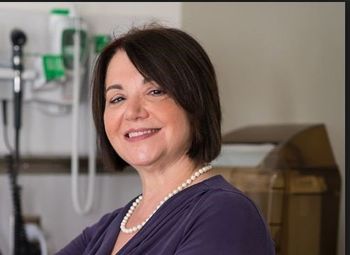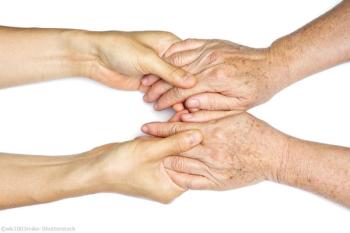
1-Day Canadian Program Impacts Oncology Nurse Burnout
Researchers from Wellspring, a Canadian nonprofit organization that supports and educates people with cancer, together with a team of patient-support consultants, have developed a 1-day program that appears to have reduced emotional exhaustion and burnout in oncology nurses.
Researchers from
To date, the 1-day session, called the “Care for the Professional Caregiver Program,” has been delivered to more than 700 healthcare workers. The CPCP educates professional caregivers about how to recognize and prevent burnout, focusing on the vicarious trauma and loss encountered in daily practice as a main contributor. It also teaches coping strategies designed especially for the workplace.
A study of the program was reported online first in the October 25 issue of the journal Cancer Education, by Wellspring Program Leader Claire Edmonds, PhD, and coauthors.
Describing the CPCP program, Dr. Edmonds said, “This full day workshop offers a safe, supportive, and confidential environment for healthcare workers to explore their workplace experiences, identify factors that relate to burnout, and learn to mitigate its impact. The morning is spent identifying the nature of the traumas and losses that [nurses and other professional caregivers] experience vicariously or even personally (for example, disclosing diagnoses, administering difficult treatments, witnessing grief and loss of patients and their families, working with palliative patients, working in a system of ongoing fiscal restraints) and the impact that this can have on professional and personal well-being.
“A workplace coping model is presented offering an approach that healthcare professionals can use in processing grief and loss; acknowledging the losses, expressing the thoughts and feelings that arise, learning to make adaptations, and understanding the value of integrating these losses. The morning session takes place in both a large-group-discussion format as well as in dyads; there is a process of both validating the experiences of the group, learning from each other, and informal mentoring. Signs and symptoms of compassion fatigue are listed through group discussion, identifying of the effects of burnout on both patients and the professional. There is a break for lunch, socializing, and team-building, and the afternoon offers an opportunity for hands-on exploration of self-help strategies that have proven efficacy in mitigating stress (for example, progressive relaxation and guided imagery) in an instructive but relaxed atmosphere.”
The investigators assessed the effects of the CPCP on three groups of oncology nurses (pediatric, surgical, and general oncology staff) and one group of nurse managers. Before participating in the 1-day program, the nurses completed the
Six months after the original CPCP session, a small number of study participants were selected at random to participate in a 1-day CPCP booster session.
While one-third of the nurses showed high burnout on the MBI at baseline, at 1-month follow-up testing they demonstrated a significant decrease in emotional exhaustion and an improvement on the GHQ (P = .003 and .001, respectively), and this benefit was maintained at 7-month follow-up testing (P = .002 and .001 for the MBI and GHQ results, respectively).
Dr. Edmonds and coauthors noted that only a small percentage (22%) of the nurses studied participated in the booster session, owing to "institutional scheduling problems due to nurse shortages." Nevertheless, they said that the intervention was "well received" overall and concluded that "the CPCP is effective in ameliorating emotional exhaustion, an intrinsic aspect of burnout.”
Newsletter
Stay up to date on recent advances in the multidisciplinary approach to cancer.




































